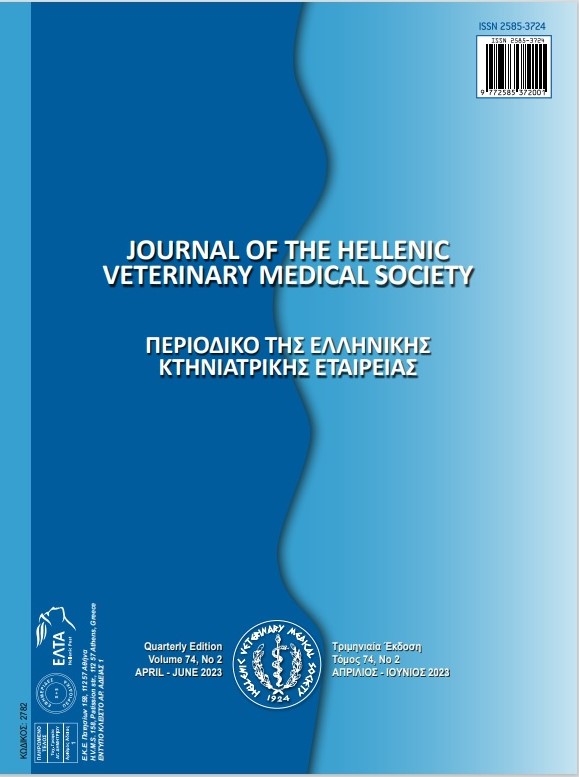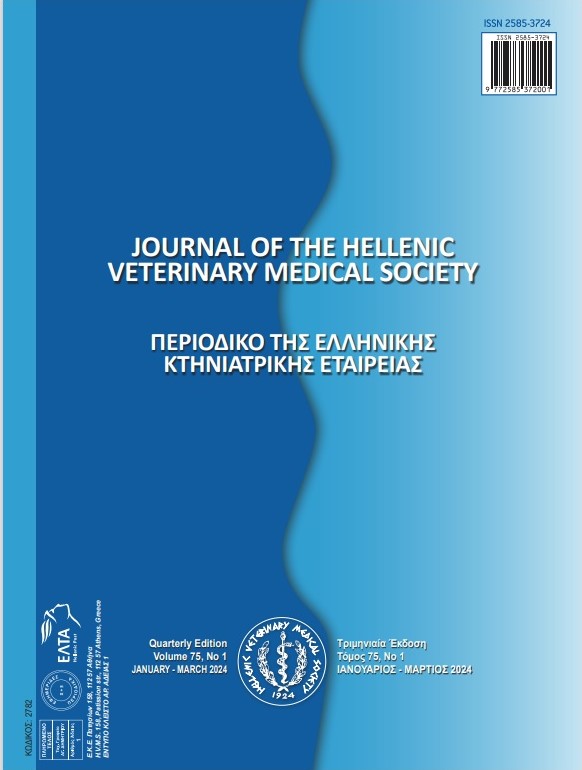A The Effect of Variation in Dietary Cation-Anion Difference on Calcium Status, Blood Metabolites and Rumen Activity during the Transition Period of Holstein Dairy Cows Dietary Cation-Anion Difference
Résumé
A negative dietary cation-anion difference (DCAD) induces a compensated metabolic acidosis, stimulating calcium (Ca) absorption and mobilization before calving, thereby decreasing clinical and subclinical hypocalcemia postpartum. The study was designed to determine the effects of varying pre- and postpartum DCAD diets on serum total calcium, ionized calcium, blood and ruminal fluid metabolites, and milk production in prepartum and postpartum Holstein cows. Fifty-four multiparous dry Holstein cows n= 54, were enrolled in a completely randomized block experimental design at 29 days prior to expected parturition through 86 days in milk. A 3 x 2 factorial arrangement of treatments was utilized. Three DCAD levels were fed precalving (0, -120 and -200 mEq/kg DM), n=18 cows per treatment and two DCAD levels were fed post calving (+200 and +400 mEq/kg DM), n=27 cows per treatment. Prepartum urine pH was lower for cows fed -200 DCAD compared with those fed -120 or 0 DCAD. Postpartum urine pH was higher for cows fed +400 mEq/kg compared to cows fed +200 mEq/kg DCAD. Prepartum serum total calcium, ionized calcium, and hydroxyproline was highest for cows fed -200 DCAD compared to those fed -120 and 0 DCAD. Parathyroid hormone was highest for cows fed 0 DCAD compared to those fed -120 and -200 DCAD. Prepartum dry matter intake (DMI) was lower for -200 and -120 DCAD compared with 0 DCAD. Postpartum DMI was not different among treatments. Pre- and postpartum DCAD treatments did not affect total milk yield or milk fat, percentage of milk protein not affected by different pre-and postpartum DCAD levels. Prepartum anionic diets lowered urine pH and parathyroid hormone and raised serum hydroxyproline, resulting in improved Ca availability after parturition. Postpartum blood metabolites were unaffected in cows given positive DCAD (+200 and +400 mEq/kg DM). Calves born to cows fed low DCAD had no change in calf bieth weight. Colostrum amount and IgG concentrations were unaffected by treatments. No effects of pre-or postpartum DCAD treatments were observed for milk yield and fat-corrected milk. Feeding prepartum an acidogenic diet improved postpartum Ca status in multiparous Holstein cows.
Article Details
- Comment citer
-
Hassanien, H., Abdel-Raouf, E., Mahmoud, A., & Greene, L. (2023). A The Effect of Variation in Dietary Cation-Anion Difference on Calcium Status, Blood Metabolites and Rumen Activity during the Transition Period of Holstein Dairy Cows : Dietary Cation-Anion Difference. Journal of the Hellenic Veterinary Medical Society, 74(3), 5965–5978. https://doi.org/10.12681/jhvms.30607
- Numéro
- Vol. 74 No 3 (2023)
- Rubrique
- Research Articles

Ce travail est disponible sous licence Creative Commons Attribution - Pas d’Utilisation Commerciale 4.0 International.
Authors who publish with this journal agree to the following terms:
· Authors retain copyright and grant the journal right of first publication with the work simultaneously licensed under a Creative Commons Attribution Non-Commercial License that allows others to share the work with an acknowledgement of the work's authorship and initial publication in this journal.
· Authors are able to enter into separate, additional contractual arrangements for the non-exclusive distribution of the journal's published version of the work (e.g. post it to an institutional repository or publish it in a book), with an acknowledgement of its initial publication in this journal.
· Authors are permitted and encouraged to post their work online (preferably in institutional repositories or on their website) prior to and during the submission process, as it can lead to productive exchanges, as well as earlier and greater citation of published work.




